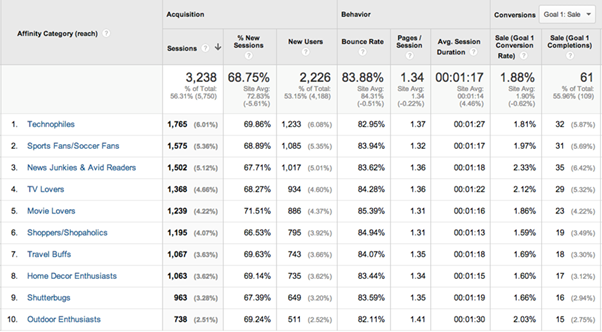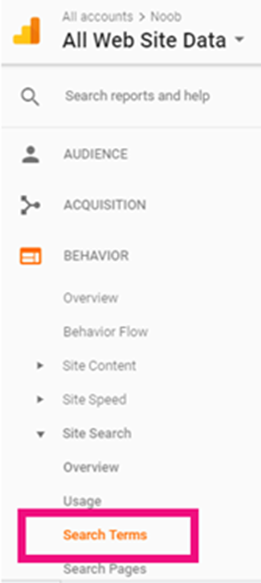For those who own ecommerce businesses, it is crucial to understand how to grow your business. Various factors, like traffic, engagement, etc., matter the most for an online business. This is especially true for small businesses with limited funding. That is why you need to know how to fully optimise your resources to grow your own ecommerce business.
Today, optimised digital products are necessary for online stores and brick-and-mortar stores. You can sell online more efficiently with the correct online store builder tactics. To instigate more customer purchases, you need solid marketing tactics at your disposal.
So, no matter which of the following resources you use for your online store, you need to know the market demand before starting an online business.
Improve Your SEO and Content Marketing strategy
Optimising search engines, email marketing, social media channels, and other metrics is essential. However, none of this will work well without a solid SEO and content marketing strategy.
SEO and content marketing together is a great online store builder that helps you better cater to your target market. SEO brings high-quality traffic, and content marketing brings trust and authority. You need both to bring in more traffic to your ecommerce store.
As search traffic brings in new traffic from the content, the content itself verifies the trust users had. You can achieve this through a specific blog post with authority-building content. Or, you can do so with an ecommerce store with quality product ideas.
The longer users stay on your ecommerce store, the more traffic the site gets. Google looks at metrics like time on site and number of pages read on the ecommerce website. You can even use tools like Google Analytics to help you in this. Once you understand this better, it opens new avenues for even more traffic.
The question is, how do we improve the traffic to the ecommerce website in the first place using content and SEO marketing?
Step 1: Test your Keywords
We discussed many times on this blog how keyword research is vital to any search engine optimisation campaign.
Fortunately, several tools exist to help you find the right keywords. We discuss many of them in 9 Essential Content Marketing Tools for a successful ecommerce business.
Among these, the three most important ones would be SEMrush, Google Analytics and Google Search Console.
SEMrush
SEMrush shows you the best organic and paid results for your ecommerce website. So, you can find the best keywords to use in your next content marketing piece.
You can also use SEMrush to compare other domains in your niche to see what keywords your competitors rank for on Google. You can either go after those keywords or look for alternative keywords to target.
This also helps ecommerce store owners understand the difficulty level for each keyword. If a site like Wikipedia ranks high for the keyword you want, then it will be harder to rank than if your average Joe website ranks for the keyword.
Consider your competition when you look at keywords for your next content piece. It could decide whether people read it or it gets relegated to the dustbins of low rankings.
Google Analytics
Google Analytics is a tool that provides you with the entire report on your site starting from its creation. There is no better tool for you to analyse your search traffic than Google Analytics. You can even work on your engagement metrics better with this tool. It works in a different way than most SEO tools, though.
You will not see any immediate improvement in your ranking with this analytics. Instead, Google Analytics offers various clues subtly, like:
- An increase in the number of search traffic
- The landing page that fetches the most traffic
You can decipher the targeted keywords thereon from these two invaluable metrics. If you are not sure how to use Google Analytics fully, we will help you.
Google Search Console
The Google Search Console is not the same as Google Analytics. It instead helps you assess what keywords work best currently on your ecommerce website. When you understand what works right now, you can duplicate that success in the future.
Therefore, if you wrote the Complete Content Marketing Strategy Guide, you could also create follow up articles on similar topics like SEO and content marketing.
Keep in mind when you look for keywords, you should consider the following items to ensure you have the highest keyword rankings:
- Target audience
- Possible terms used
- Competitor keywords and placement
Step 2: Find your audience
Once you get the right keywords, it is time to find your ideal audience for your content. Whatever content you create will not matter if you target your keywords for the wrong audience.
On top of that, your audience determines the other intangibles. For instance, how long visitors stay on your ecommerce website and how many pages they visit after arriving.
You need to identify keywords at different buying cycle stages to ensure you have the right content to move a prospect forward.
For example, an article, product description, or video works for a buyer who is doing initial research. However, those ready to decide might need a case study or data backing up your product or service.
Create a profile of your ideal ecommerce client to determine what content they would interact with most at each stage. This can help you decide if you want to create more blog posts, add videos, or write better product details on your ecommerce website. The more information you have, the more educated decision you make.
This, in turn, leads to greater engagement with the content and, by extension, improves search rankings.

Step 3: Get links to your ecommerce website
Quality content not only gets attention, but it also gets links back to your website. You receive this when other bloggers cite your information in their blog posts and link back to your ecommerce website.
The better your content, the more links you get to your website.
You can also do some outreach to get backlinks to your website. For example, you can create follow up articles if you wrote the Complete Content Marketing Strategy Guide. These could be articles on SEO and content marketing.
Remember, quality content and search work together. The content you create on a third-party website leads to backlinks that further lead to higher search rankings. These rankings provide more traffic and a larger audience for the content you create on your own ecommerce business. It is the circle of life for businesses looking to marry SEO and content marketing.
Understand What Google Wants from SEO Content
Google is by far the largest search engine on the planet. It, therefore, carries an extraordinary responsibility of connecting Internet users with the correct answers to their search queries. It does that by ranking search results starting with the ones that are most likely to interest the user.

To do that, Google has to look for specific quality indicators and collect data on each web page of your ecommerce website. It then indexes a specific page based on the data to determine whether to include it in a query’s search results and on what priority. While the Google algorithm isn’t public, and the number of indicators could be in the hundreds, there are things we do know (based on countless observations) Google will use to gauge the quality of SEO content.

Relevance
Remember that more search results mean more potential customers and more sales. An ecommerce website should have web page content relevant to the user’s query if it appears in the search results. If you have a web page focused on eye drops, it will never rank in Google queries related to athlete’s foot.
Relevance is not just related to page content but also to backlinks. Google will not give much regard rank-wise to backlinks to your eye drops web page if they do not originate from sites relevant to your web page’s content.
Google expects that since backlinks are an endorsement of sorts. The backlinks can only be considered genuinely vouching for your web page if the originating site is a credible resource.
Expertise
Expertise is about demonstrable knowledge and skill in a subject area. Nevertheless, for SEO content for ecommerce businesses, possessing knowledge won’t automatically open the floodgates of traffic. Instead, you have to communicate this skill and knowledge to attract and engage your readers. To do that, you have to master who your audience is, what they want (i.e. not just what they are searching for but also their search intent) and what is the most effective way to reach out to them.
You have to determine what their knowledge of the subject is. The wording you use for a novice shouldn’t be as jargon-filled. You must find the right balance between detail and simplicity when running an ecommerce business.
You cannot cover everything on the web page or product page of an ecommerce site. So, provide blog posts with internal and external links. This will help those who are looking to delve deeper into the topic.
Authority
Expertise and authority aren’t synonymous. You start as an expert in the hope of becoming an authority in your field. It can happen in two ways:
- When influencers, leaders, industry publications and other experts are referring to you and your ecommerce web pages as a source of information
- When you and your brand become virtually synonymous with a subject, you are no longer just an expert but an authority.
There are several techniques Google use to establish the authority of your ecommerce site:
- Backlinks to your ecommerce site from recognised authoritative sites
- Mentions of your name and brand (even without links) in the press, journals and other reputable online publications
- Having a Wikipedia page about you or your ecommerce business as an indicator of notability
- If a substantial number of queries are explicitly referring to your name or your ecommerce business
Trustworthiness
Having expertise and authority will see your web page’s ranking soar to the top of search results. However, a lack of trustworthiness is perhaps the fastest way to see your ranking fall dramatically. If you don’t quickly address negative reviews around your content, product or ecommerce business, Google will severely punish your pages.
For instance, if your business is based in North America, you want to keep a close eye on your reviews on reputed sites. This is considered a significant source of consumer satisfaction by Google.
Besides delivering a quality product on your online store, keeping your promises and addressing negative reviews can improve your online business’s trustworthiness. This is a clear way for users to contact you. So, you can add:
- An easily accessible T&Cs page, adopting SSL/TLS for your website
- A clear return and refund policies
- Comprehensive product documentation
Fresh Information
Certain information will hardly ever change on your online store, especially for recurring products. However, humanity is continuously discovering new knowledge in all kinds of areas. Even when it isn’t new knowledge, there’s always an opportunity to provide new perspectives on existing knowledge.
That’s why Google considers the freshness of your web page to be a factor in determining content’s quality.
If your ecommerce website or web page hasn’t been edited, revised and updated for the last 5 years, then there’s a good chance that the information is out of date and potentially misleading. Keeping your content fresh and evergreen is fundamental to high search results ranking for an ecommerce business.
Shareability
Google believes that users will know good content when they see it. So, a good indicator of quality is how shareable your content is. If people like what they’ve just seen on your online store, they’ll be excited and confident about sharing it with their social circle.
Sharing it is effectively an endorsement of your content and will mean putting their name on the line. Users will be eager to distribute inaccurate or incoherent content.
If your web page is shared consistently and widely on social media, it’s a positive sign to search engines that your online store deserves to rank high up on search results.
How Google Analytics Can Boost Your Ecommerce Business
Google Analytics is another great tool that will help you gather more data for your ecommerce site. It allows you to streamline your entire operation as you can manage all details from a single integrated dashboard.
The dashboard offers data for casual users and an in-depth report set for the pages that are not performing well. It uses a method called funnel visualisation to accomplish this.
You can even create customised business reports for an ecommerce store. Of course, you will need a GA (Google Analytics) account for this.
With the help of Google Analytics Tracking Code, you can add a JavaScript code snippet to each site page. The benefit of doing this is that you can gather all the visitor data and send it to the Google data collection server.
This will also help you ease the customer journey on your site and create more trustworthiness for your brand.
Using Google Analytics for Your Online Store
To implement Google Analytics fully, you need to look at its various aspects first. In recent times, there have been a lot of changes in the analytics made by Google. For instance, the Analytics 4 will be especially useful for Google Analytics for ecommerce.
Google Analytics also declared a new method to collect data, known as Global Site Tag or gTag. This is an attempt to make the implementation process a lot simpler. It is a new alternative to the existing Google Tag Manager system and also helps in conversion tracking of Google Ads.
With Google Analytics 360, for instance, you get access to various tools like this that includes the likes of:
- Data studio
- Attribution
- Tag Manager
- Optimise
- Audience Centre
- Analytics
Google Analytics also helps you target the right customers as you can understand more about the traffic to your store. By understanding which pages are performing better, you can improve your inventory and add more pages to the store. For instance, you can get an idea about what your competitors are doing right and what customers are searching for.
The best part is that you can do these for free, and no paid social marketing is required. All you need to do is utilise the right resources and upgrade your services to help the customer online.
Final Thoughts
Lastly, you need to put your trust in the process. Remember that it takes time to see results. It does not matter how good your content is or how efficiently you have utilised Google Analytics, Google Search Console, and SEO. You will still not see instant results. Being able to come on top results requires a lot of effort on your part. That is why you always need to pay attention to the key indicators and update your website repeatedly.
With due diligence, you will start seeing significant results as your ecommerce website pages will start to appear on top queries. If you need any assistance in developing the perfect strategy, we are always there to help. So, book an appointment with us, and we will be more than happy to get back to you.

